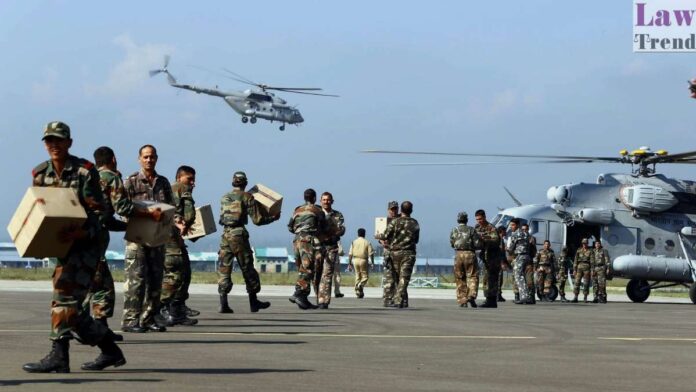In a strongly-worded response, the Supreme Court of India on Thursday rejected a public interest litigation (PIL) seeking a judicial investigation into the recent terror attack in Pahalgam, questioning whether such petitions served to “demoralise the forces” during a critical period.
The PIL, which was mentioned before a Bench led by Justice Surya Kant, drew sharp criticism from the court for its timing and perceived intent. “Is this the way you want to demoralise our forces?” Justice Kant asked pointedly, adding, “Be responsible before filing such PILs. You have a duty towards the country also.”
Refusing to entertain the plea, the Bench made it clear that such matters of national security and anti-terror operations do not fall within the judiciary’s domain. “Since when did Supreme Court judges become experts in these matters?” Justice Kant remarked.
The petitioner, whose identity has not been disclosed in the public record, had filed the PIL following the April 22 terror attack in Pahalgam, Jammu and Kashmir, which claimed the lives of 26 people, most of whom were civilians. The plea called for an independent judicial inquiry into the incident and also raised concerns about the safety of Kashmiri students studying in other parts of the country.
However, the court noted that the PIL made no mention of the students in its prayer and expressed strong disapproval of what it perceived as a misdirected and ill-timed petition. “This is not the time. This is the crucial hour when each citizen has joined hands… this is not acceptable to us. Look at the sensitivity of the issue,” the Bench said.
Justice N.K. Singh, who was also on the Bench, suggested that concerns regarding the safety of Kashmiri students should be addressed before the relevant High Courts instead. “For prayer regarding students, you can go to the high courts,” he advised.
The petitioner, in defence of the PIL, stated that the concerns had been raised on behalf of Kashmiri students studying in various Indian states who might be at risk of backlash in the wake of the attack. The reference came amidst prior concerns raised by the Jammu and Kashmir government, which had deputed ministers to coordinate with other states to ensure the security of Kashmiri residents and students outside the Union Territory.
Despite this clarification, the court remained firm in its stance, ultimately allowing the petitioner to withdraw the plea with liberty to approach the High Court for matters pertaining to student safety.
The Union Government, represented by Solicitor General Tushar Mehta, opposed even this allowance. “Let this not go to the High Court,” Mehta submitted, suggesting the matter did not merit judicial intervention.
The Supreme Court’s dismissal of the PIL underscores its reluctance to interfere in issues involving national security and counter-terrorism, especially at a time when the government and armed forces are on high alert. The Bench’s remarks reflect a broader judicial sentiment that such matters are best handled by the executive and investigative agencies, not through judicial probes initiated via PILs.
The Pahalgam terror attack has drawn widespread condemnation, with political leaders and civil society urging unity and support for the security forces. The court’s remarks signal a call for national solidarity during times of crisis, cautioning against frivolous or ill-considered legal activism.




